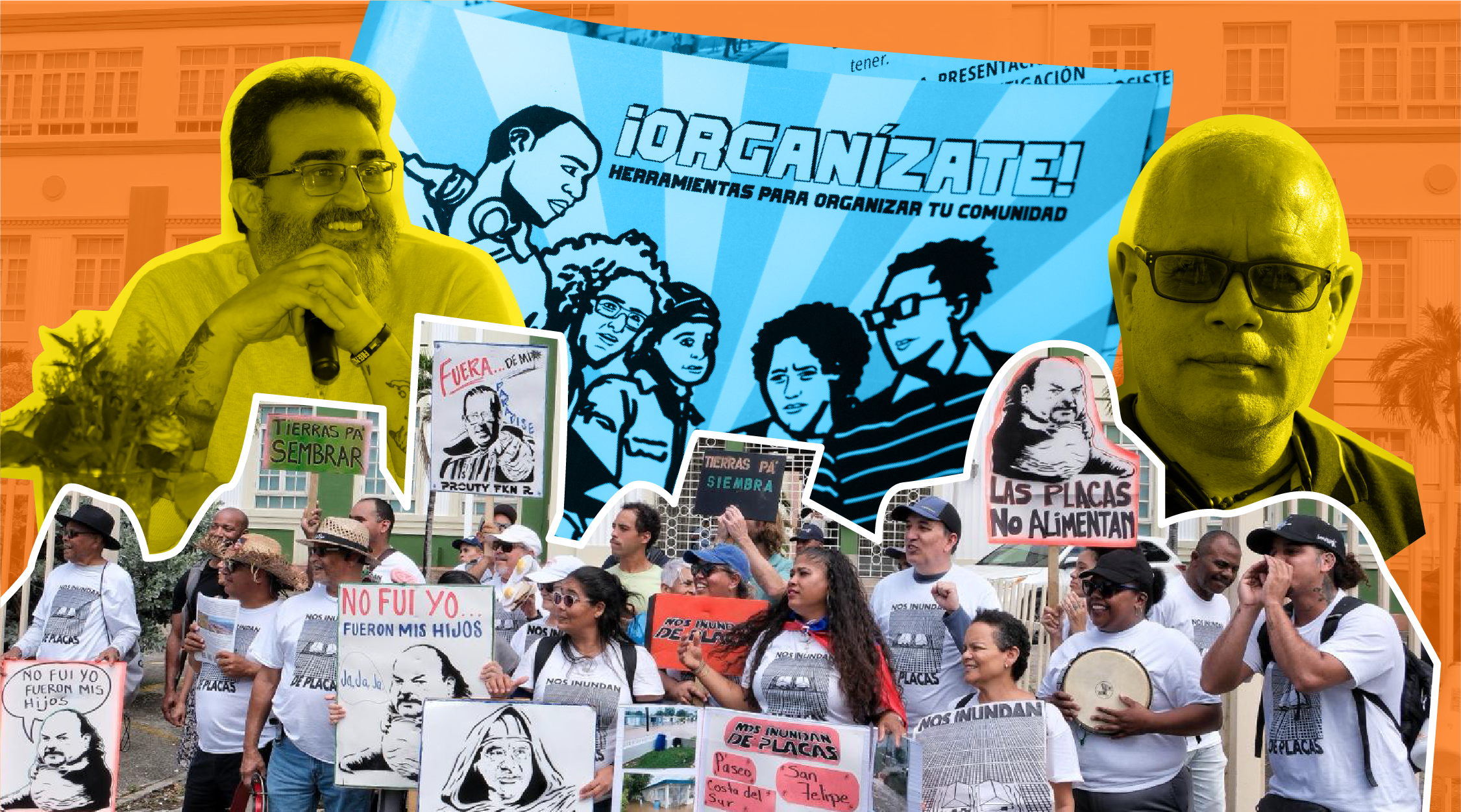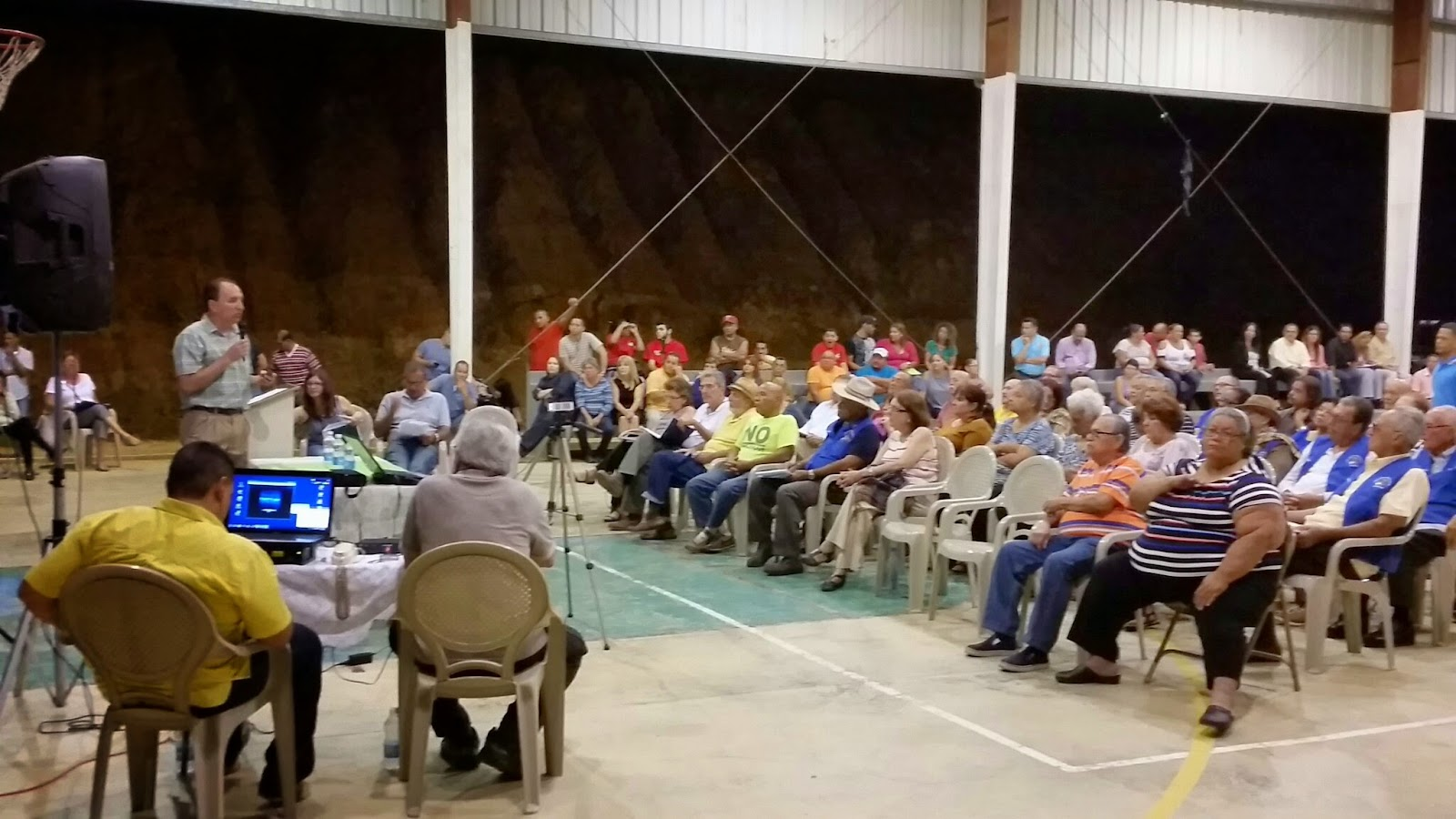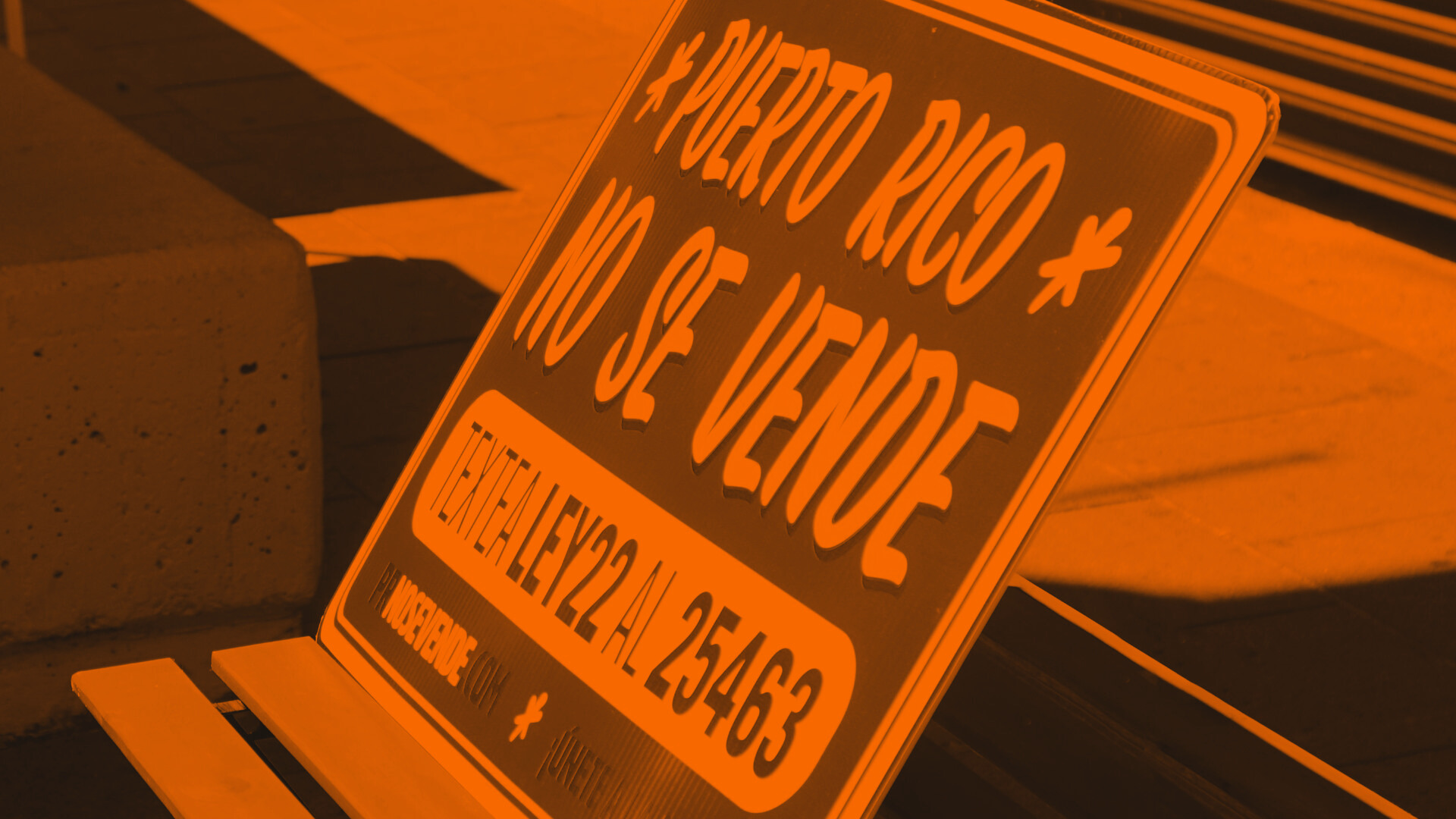
How one intermediary organization supports grassroots community groups in Puerto Rico
Groups recognized for their history of activism for environmental causes and social justice have found support in the María Fund organization, created after Hurricane Maria
In times of multiple crises and budget cuts, organizing communities is vital to their well-being. "Organizing is the path or guide to achieve the changes we want. No right has been acquired without fighting and without organizing," explained Raquela Delgado Valentín, Director of Resource Mobilization at Maria Fund, to 9 Millones.
However, organizing takes time and a lot of work. According to a 2022 survey conducted by the Maria Fund, which was distributed among grassroots community groups, the three most urgent priorities were expanding and retaining their bases, strengthening their organizing skills, and promoting leadership development.
Maria Fund, an intermediary organization, has positioned itself among the top 25 philanthropic donors in Puerto Rico, in just eight years since its founding. Its main focus has been social justice, allocating resources to grassroots organizing groups in the archipelago.
To address these needs, the Maria Fund's Grassroots Initiative brought together four organizations with a history of activism in Puerto Rico, for almost a year, to share their knowledge of organizing and collective power.
The combined knowledge of Casa Tallaboeña for Community Education and Resilience, the Initiative for the Eco-development of Jobos Bay (Idebajo, in Spanish) Taller Salud, and the Teacher's Federation of Puerto Rico produced Organízate: Herramientas para organizar tu comunidad, a document that compiles key organizing strategies. Its purpose, furthermore, was to begin telling the story of community organizing in the archipelago, which is sparsely documented, according to Delgado.

Each organization contributed a tactic to the document, all of them derived from over 15 years of experience, and their respective impacts on the well-being of several communities and the advancement of rights.
Community mapping and identifying a common problem
One approach to support these organizations is community mapping.
Idebajo was born from the legacy of knowledge acquired during decades of community activism. Idebajo was founded in 2010 to address the need of preserving the southern aquifers, and to promote the sustainable development of excluded communities in Puerto Rico’s southeastern region.
"We are heirs of the movement against Monsanto in the 80s," said Roberto Thomas Ramírez about the victory of the Las Mareas community in Salinas, thwarting the company’s attempt to build an herbicide production plant there.
One of the communities with which Idebajo successfully collaborated was the Playa-Playita Community Committee in Salinas, which rescued the La Rosada school to use as a space for education in skills such as construction, carpentry, and fishing. This school was part of the community’s plan to promote economic and agricultural development, community education, aquifer protection, and ecotourism.
Idebajo then applied this knowledge in the community of Barriada Morales in Caguas, which was planned for expropriation in 2005 to offer that space to different companies. After identifying 11 key groups and handling 5 years of organizational work, the community managed to present a proposal to the Municipality of Caguas in 2010, which then became a self-development agreement.
This tactic, known as "mapping," aims to understand the situations, strengths, resources, political formation, and power relations within a community. Some of the strategies for mapping are conversations, group meetings, assemblies, and community censuses. All of this creates a "mental and emotional map" that facilitates organizing, according to Thomas Ramírez.
However, the potential for change, in communities like these, is limited by the lack of existing popular power. "Directly influencing the decisions that affect them cannot be achieved if people are not organized, and people cannot organize if they do not have autonomy; if they do not feel that they owe their survival to another," the organization's current volunteer added.
Another limitation is polarization or lack of unity in the face of the many problems and crises. For this reason, Casa Tallaboeña contributed the tactic of choosing a common problem. In their case, the residents of Tallaboa have faced contamination as a constant threat. In this process, education is key.
"The fight alone bears no fruit if it is not accompanied by education. Believe me, people who didn't even have a fourth-grade education knew the impact of the gas pipeline. That helps people identify that 'this affects me and my community.' That fight creates empathy in other communities that can identify themselves," said Díaz Pérez.

Organizing Laboratory
Based on these conversations, the Maria Fund team reaffirmed that a space was needed to share this knowledge and develop skills. That was how the Organizing Laboratory came to be, a pilot program that premiered this year to train leaders with organizational skills and abilities, be it from groups that already do this kind of work or those seeking to incorporate organizing.
In total, the project lasted 6 months, benefited 25 organizations throughout the archipelago, and invested around $60,000 in transportation, lodging, stipends, educational materials, and its final activity, among other things.
"We wanted to offer advanced training to leaders who are committed to community organizing and provide tools for campaign creation, expansion of organizational and political strategies, but also for sharing knowledge among themselves," explained Delgado, who was in charge of the initiative.
The first cohort began in February, with a 5-day training in Maunabo. Here, they gathered 25 leaders to train them on topics such as power maps, campaigns, recruitment and retention strategies, and leadership development.
Then, they went deeper in these topics during the second phase, called Communities of Practice. These virtual spaces allowed them to reinforce skills and assist each other in putting them into practice. Each meeting was facilitated by two or three leaders from the cohort, who connected the topics to specific examples in Puerto Rico.
The program’s closing event celebrated the cohort’s achievements with presentations led by participants, music, and the act of giving notebooks for reflection, which contained tactics derived from the Grassroots Initiative, concrete examples in Puerto Rico, and spaces to reflect and write about the content of the notebook. Delgado explained that they wanted to capture the learnings so that each participating organization could apply them in the future: "From this arises the need for these conversations to remain not only in everyone's notes."
The program was done in collaboration with Midwest Academy, a US organization founded in 1972 that trains community leaders. According to Delgado, this collaboration enriched the space by bringing new and different strategies and experiences to the table. Their participation was funded separately, through a grant they obtained from the Ford Foundation.
A better Puerto Rico is possible
Strengthening relationships between grassroots groups also serves as a form of mutual support to create collective power, which is one of Maria Fund’s goals.
As an example, Delgado mentioned that the participating organizations of the Laboratory were able to convene their bases to participate in the public hearings on the Esencia project, a mega-tourism project that proposes to cover 2,000 acres and 3 miles of protected land in Cabo Rojo and whose permits have been granted irregularly. For Delgado, "that solidarity and unity in action is one of the achievements of this process."
The Director of Resource Mobilization also recognized that more initiatives like the Laboratory are needed, a common sentiment among participants. Although they have not yet launched other development programs for organizing efforts—since the Laboratory is considered a pilot program—Maria Fund did launch several calls for funds to strengthen groups that organize around particular topics or that work on narratives about topics such as youth, reproductive justice, and community defense. Together, these calls have offered up to $600,000 in available funds.
This approach was also applied in the Grassroots Initiative, where creating a vulnerable and safe space was key to communicating the needs of each group and jointly identifying solutions.

When the Initiative began, one of the first exercises was for each leader to define what the Puerto Rico they dreamed of was like. To work towards this, Maria Fund reaffirmed its support for organizations that share its vision.
"Our focus and support will always be directed to groups that have as their vision and goal to achieve the structural changes needed to live in a just, free, equitable Puerto Rico, where everyone belongs, where we can live in well-being," emphasized Delgado.
This story was possible thanks to Proximate – an independent media outlet covering movements for participatory problem-solving. Ben Wrobel, from Proximate, collaborated with editing.
9 Millones has received funding from Maria Fund. 9 Millones does not share it's reporting with any sponsors, and is solely responsible for all the content.




